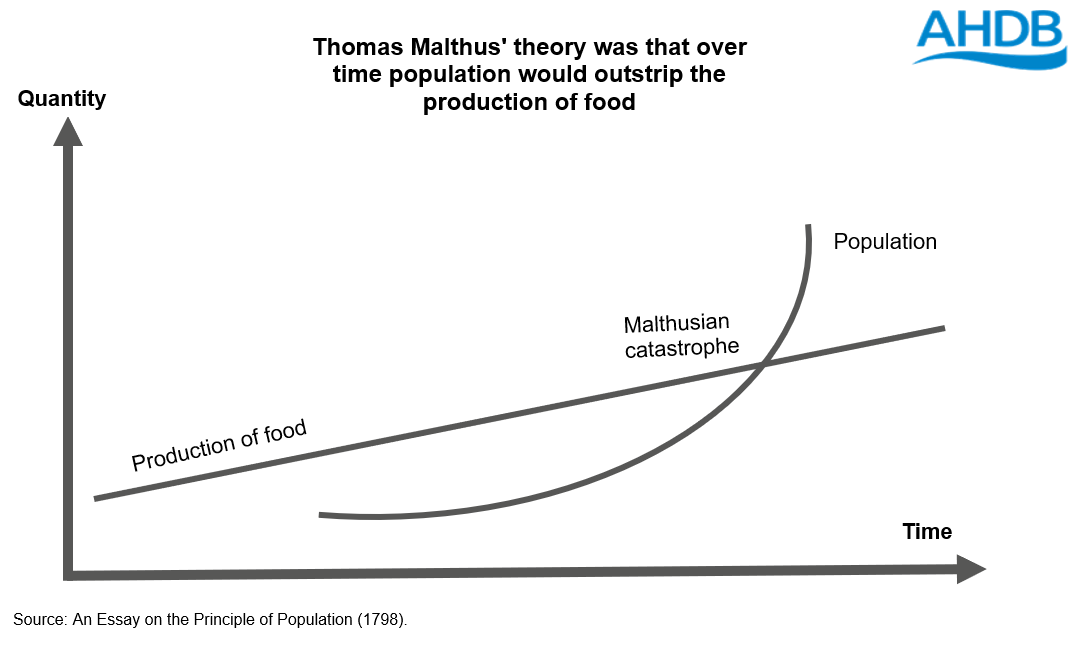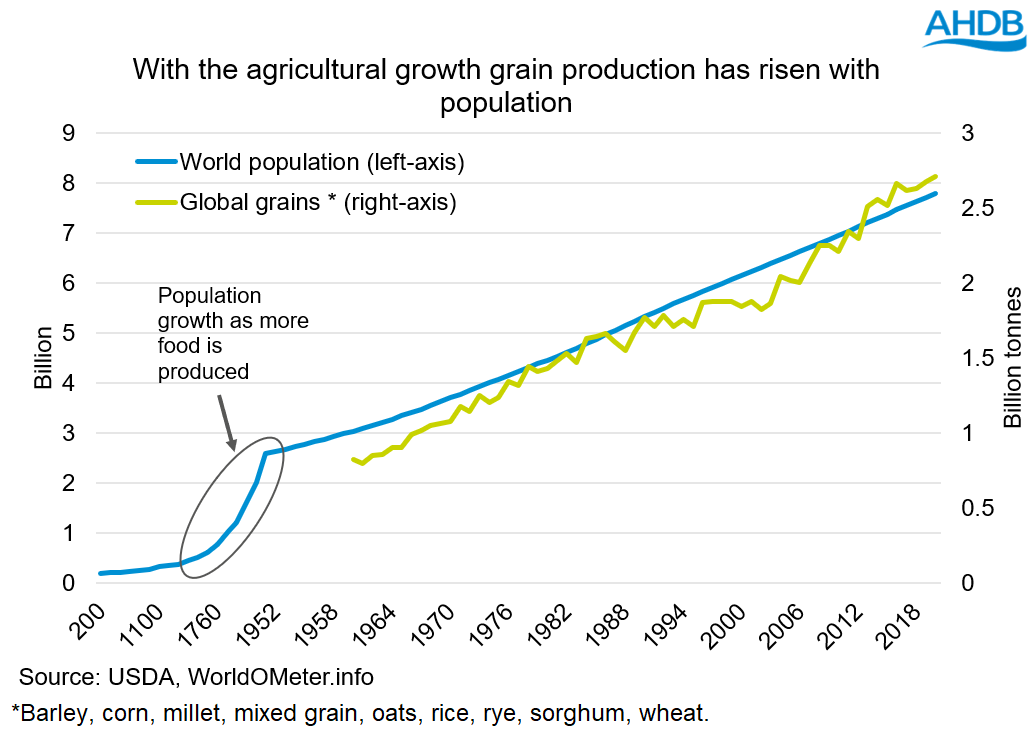Are geo-politics constraining food? Grain market daily
Friday, 8 October 2021
Market Commentary
- UK wheat futures (Nov-21) closed yesterday at £202.50/t, unchanged from Wednesday’s close. This contract has closed at this high 4 times now this month. The May-22 contract closed at £209.00/t, down £0.45/t on Wednesday’s close.
- World food prices rose for a second consecutive month in September, according to the Food and Agriculture Organisation (FAO). This is reaching a 10-year high, driving this has been the gains in cereal and vegetable oils.
- Markets are now waiting on the USDA World Agriculture Supply & Demand Estimate, due release on Tuesday 12 October.
- There is still time to sign up to the live stream of our annual Grain Market Outlook conference, sign up to the live stream here.
Are geo-politics constraining food?
With the AHDB Grain Market Outlook taking place next Tuesday (12 October), one of our live in-person sessions will be discussing food security, which will be chaired by HSBC’s head of Agri-food Allan Wilkinson.
Why food security?
The last 18-months, as the world has been battling the coronavirus, food security importance has escalated around the globe.
In the Summer of 2020, we saw a variety of net-exporting grain nations such as Kazakhstan and Russia constrain the flow or even stop the export of ag-commodities.
I have to ask if these nations’ actions reignite the discussion of global food security, especially coming out of a time when inflation is increasing with the rising cost of raw materials, logistics & global energy.
Malthusianism – Victorian economic thinking, today
When this happened to global grain markets last year, I couldn’t help but think of the pessimistic economist, Thomas Malthus (1766-1834), and his theory of Malthusianism (1798).
His theory was that the population will grow exponentially, while the supply of food is linear, which will eventually lead to poorer living conditions, pestilence and plague and trigger a population reduction.
I did mention he was pessimistic, and arguably not very popular at a time of optimism just before the industrial revolution, but this was only a theory.
After all theories are not fact, but rather represent a strong consensus in academic thinking, and through time theories can have proven flaws, be limited or flat-out false.
Post-Malthusianism, but controlled food?
However, it may seem his theory failed to take into consideration the boom in global agriculture, which was led in Europe just before the industrial revolution. Global grain production has been exponentially growing with population as far as data goes back, as we can see in the graph below.
But was his theory completely flawed? One might argue that export restrictions during the pandemic proves some truth to his beliefs.
But, how might this play out in the future? This issue of restrictions still lingers as the Russian export tax still remains. Could there be possible quota implications implied for the 2021/22 marketing year? These questions will be explored further at the Grain Market Outlook Conference, next Tuesday.
Sign up for regular updates
You can subscribe to receive Grain Market Daily straight to your inbox. Simply fill in your contact details on our online form and select the information you wish to receive.
While AHDB seeks to ensure that the information contained on this webpage is accurate at the time of publication, no warranty is given in respect of the information and data provided. You are responsible for how you use the information. To the maximum extent permitted by law, AHDB accepts no liability for loss, damage or injury howsoever caused or suffered (including that caused by negligence) directly or indirectly in relation to the information or data provided in this publication.
All intellectual property rights in the information and data on this webpage belong to or are licensed by AHDB. You are authorised to use such information for your internal business purposes only and you must not provide this information to any other third parties, including further publication of the information, or for commercial gain in any way whatsoever without the prior written permission of AHDB for each third party disclosure, publication or commercial arrangement. For more information, please see our Terms of Use and Privacy Notice or contact the Director of Corporate Affairs at info@ahdb.org.uk © Agriculture and Horticulture Development Board. All rights reserved.



